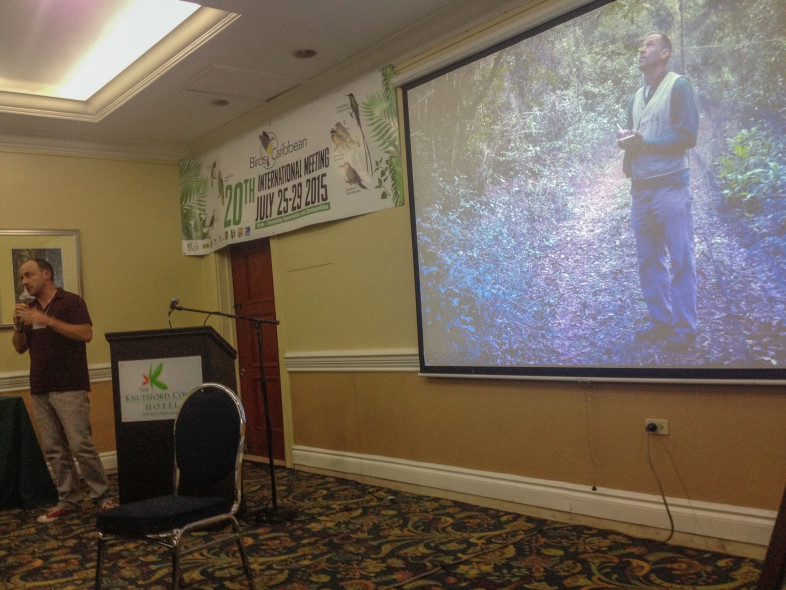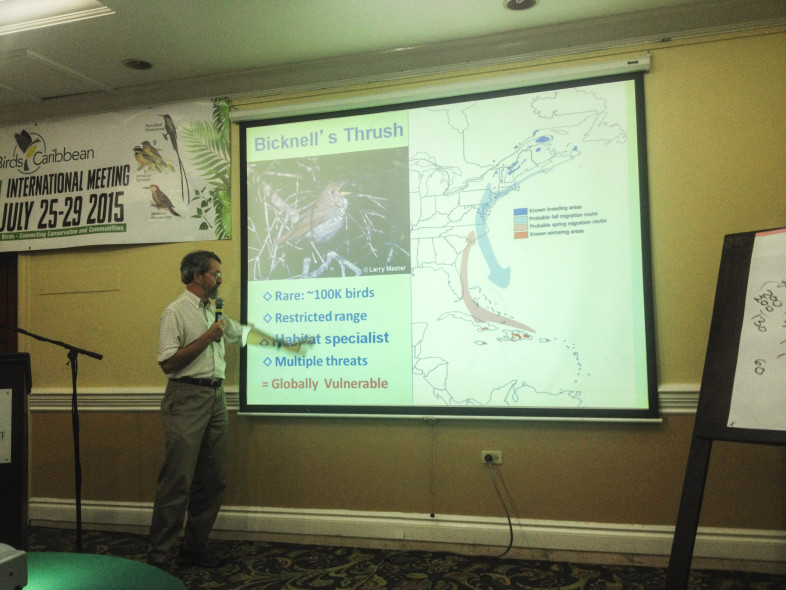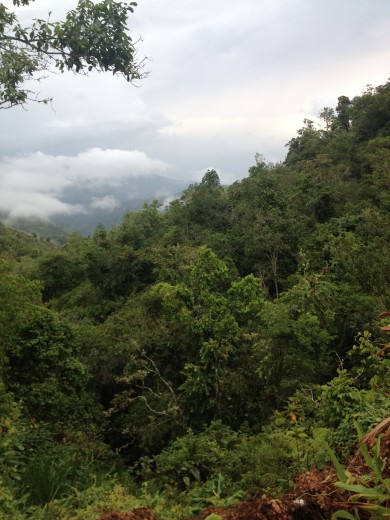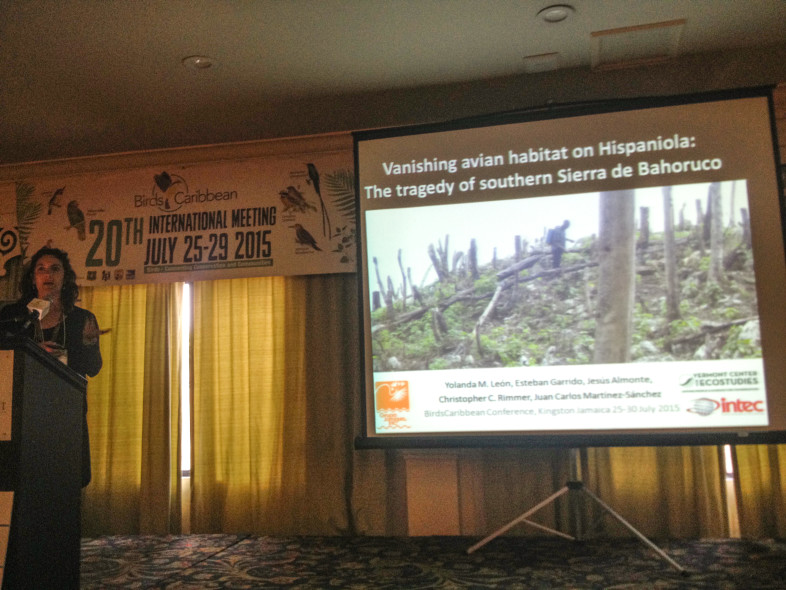
John Lloyd flashes an image of a VCE colleague during his BirdsCaribbean talk, which summarized 15 years of mist netting data in cloud forests of Sierra de Bahoruco.
Throw together 150 people from 30 (or so) Caribbean islands, sprinkle in a couple of dozen North and Central Americans, unleash the assemblage to talk about birds and avian conservation for 5 straight days, and mix in targeted “down time” for birding. Last week’s BirdsCaribbean meeting in Kingston, Jamaica was a lively, eclectic and inspiring gathering, to say the least. The diversity of cultures, ethnicities and languages alone was remarkable. John Lloyd and Chris Rimmer represented VCE at this biennial international gathering, which proved as much a rich networking opportunity − and a great chance to renew friendships − as a forum to exchange information.
The meeting program featured a mix of plenary talks by speakers such as VCE’s longtime Dominican colleague Eladio Fernandez, concurrent paper sessions, and working meetings. VCE’s mark was very evident, as we coauthored five talks (all presented on the same day!) and led a working meeting of the International Bicknell’s Thrush Conservation Group. In chronological order, our talks included:
- Vanishing avian habitat on Hispaniola: the tragedy of southern Sierra de Bahoruco − by Yolanda Leon, Esteban Garrido, Jesus Almonte, Chris Rimmer, and Juan Carlos Martinez-Sanchez
- Household impacts of PES (payment for ecosystem services) in National Park La Visite, Haiti − by Jim Goetz, Chris Rimmer and Juan Carlos Martinez-Sanchez
- Demystifying the overwinter status of Bicknell’s Thrush on Puerto Rico − by Chris Rimmer, John Lloyd and Jose Salguero
- The role of information transfer in research and conservation involving threatened and endangered migrant species in the Caribbean − by Joseph Wunderle and Chris Rimmer

Joe Wunderle’s talk highlighted Bicknell’s Thrush and Kirtland’s Warbler as flagship species for Caribbean conservation.
- Constant-effort mist netting over 15 years in Dominican Republic cloud forest reveals a mix of stable and declining bird populations − by John Lloyd, Chris Rimmer and Kent McFarland
A refreshing aspect of every BirdsCaribbean meeting is scheduling of the middle day entirely for local field trips. This welcome break satisfies the urge of birding-hungry attendees and provides a more informal means for daylong interactions. John took the lowland route to a coastal area of wet forest called Ecclesdown, while Chris opted for the Blue Mountains, which host Jamaica’s highest elevation at 2256 meters (7402 feet), its famous coffee, and the island’s only known area of overwintering Bicknell’s Thrush. Jamaica’s 30 endemic birds did not disappoint, as we tallied 20 species between us. Who could have believed that the Red-billed Streamertail, known locally as “Doctor Bird”, is dirt common, even on our hotel grounds??

Wet montane broadleaf forest at Hardwar Gap in the Blue Mountains, a known overwintering site for Bicknell’s Thrush
This meeting forged many new connections for VCE, strengthened longstanding collaborations, and explored emerging opportunities. The 2017 venue for BirdsCaribbean is planned to be Cuba, and many of our colleagues emphasized a real need to ascertain the status of Bicknell’s Thrush there. The island’s southeast region − Sierra Maestra (where the species was documented ten years ago) and the remote, little-explored Humboldt National Park − beckon for targeted surveys. So, it appears that VCE’s next Caribbean frontier may involve a westward shift!

